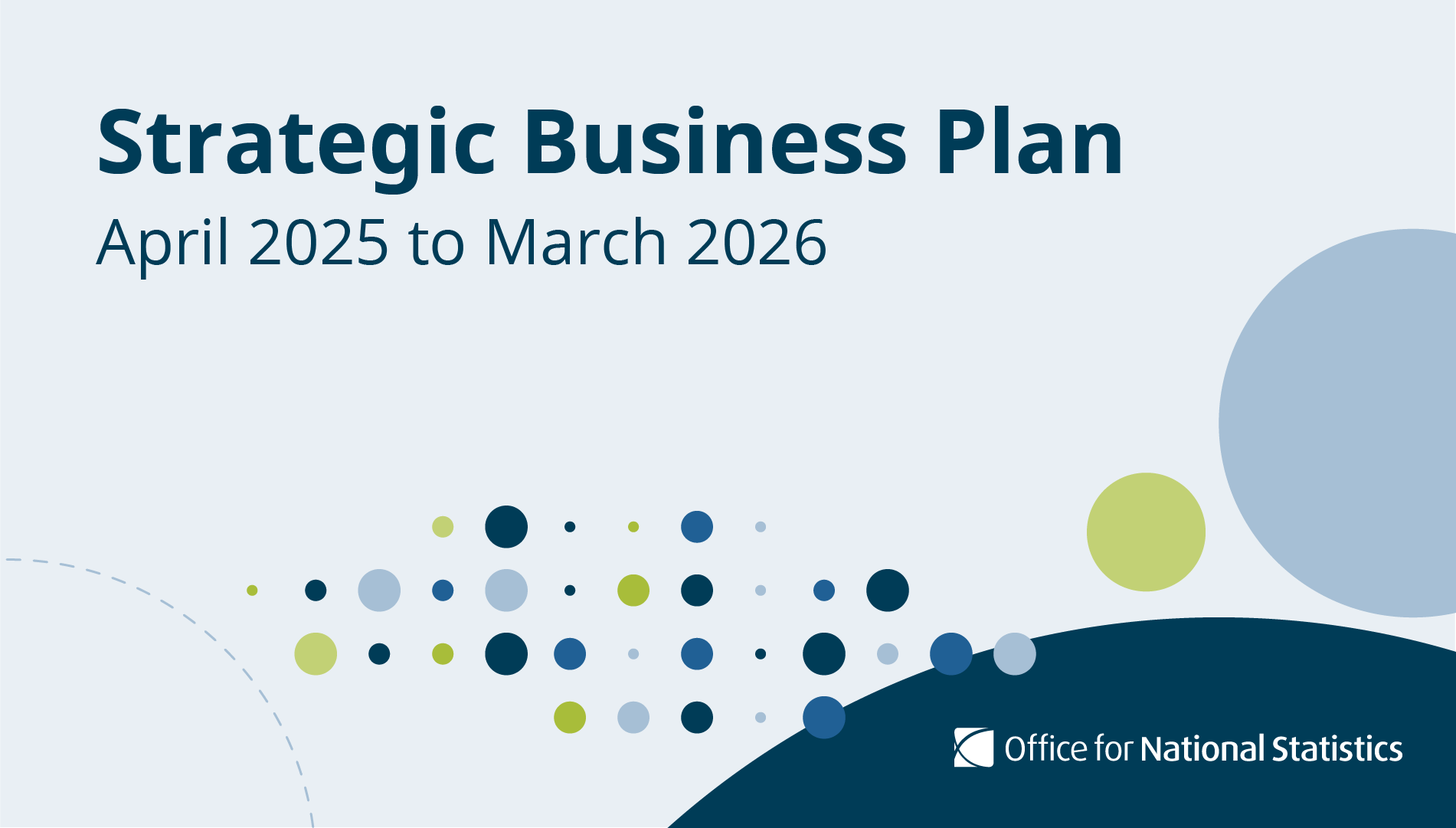National Statistician's foreword
The Office for National Statistics (ONS) and wider Government Statistical Service (GSS) produce key statistics which provide insights into the nations’ economy, population and society. Demand for our statistics and analysis continues to grow. We are using new data sources and methods to complement censuses and surveys, delivering more frequent and granular statistics that meet the priority needs of our users to understand how the United Kingdom (UK) is changing and developing.
The UK Statistics Authority’s (the Authority) strategy, Statistics for the Public Good, sets out the need for high quality statistics and data to inform the UK, improve lives and build for the future. Underpinning the work of the Authority since summer 2020, the strategy has empowered the statistical and analytical system to respond to significant challenges, including the rising cost of living, inactivity in the labour market and geopolitical disruption to trade. The Authority will be publishing a refreshed strategy in summer 2025 to cover the 2025 to 2030 period. This will build upon the successes of Statistics for the Public Good, while addressing challenges and opportunities facing the statistical system over the next five years.
Delivering our suite of economic and population statistics remains our core function and is reflective of decisions we’ve made to prioritise resources. Gross Domestic Product (GDP), prices, labour market and population statistics take prominence in our outputs. However, we do these alongside undertaking vital transformation work, including on prices and delivery of our labour force statistics. Given the importance of high-quality economic statistics for decision makers, financial markets and the public, we are developing a strategy for economic statistics to give more clarity in direction, along with a detailed and prioritised workplan. This plan will be reviewed annually to reflect changing data sources, methods and stakeholder needs.
Alongside delivery of our core economic and population statistics, the ONS works closely with partners to provide responsive analysis that directly address policy priorities, including the missions introduced by the Government. These statistics, and many others across the organisation, provide vital insights for policy formulation across government.
However, the statistical system currently faces several challenges, including falling survey response rates (experienced by statistical institutes across the world), and legacy statistical production systems. We are confident a new survey strategy, underpinned by a thorough recovery plan, will chart the path to a robust, sustainable survey system that can deliver the data required to inform key decisions.
Given the tight financial and human resources backdrop and the need to prioritise our most critical statistics, difficult decisions need to be made – some of which are outlined in this plan. Confronting these pressures requires innovation in delivery, such as making effective use of technologies to drive efficiencies and a proportionate approach to transformation. The ONS has been working at pace, and like other organisations, it has been necessary to review our priorities and spending. Continuing engagement with users to inform priorities will be essential. Maintaining the quality of our outputs is at the forefront of our plans. Over the next year, we will revisit our portfolio of quality assessments ensuring they are focused on the highest priority areas considering risk to the specific inputs, outputs and stakeholder needs.
The Independent Review of the UK Statistics Authority made several recommendations including the establishment of the inaugural UK Statistics Assembly. The event that took place in January 2025 was an important milestone in ensuring that users, including those from central, local and devolved governments, business and industry, academia, civil society and charities, had the opportunity to discuss and advise on the statistical and data priorities for the UK. The Independent Report on the Assembly outlined four high-level priorities for the Authority, namely: ensuring sustained and effective engagement with users; continued development of official and unofficial sources with appropriate methodologies to meet the needs of user for more granular statistics; taking a leadership position in scaling up the use of administrative data alongside surveys, censuses and other types of data; and recognising the needs for UK-wide statistics and advocating for harmonised data where desirable. These Assembly priorities will inform our organisational activity in the forthcoming year, as well as future plans. User needs and insights will also continue to inform the ONS’s policy development at a strategic and operational level, including through our expert user advisory groups, stakeholder engagement events and specific consultations.
As we maintain the strategic direction as set out in our current strategy, we have refined our priority outcomes to focus on our statutory functions and provide the nation with the data it most needs, while driving forward innovation using radical and ambitious approaches to modernise how we work. These four priority outcomes form the basis of our 2025 to 2026 Strategic Business Plan (SBP) and are:
- An enhanced reputation for delivering trusted, relevant, independent statistics and analysis.
- Top quality published statistics on prices, GDP, the labour market and population (including births, deaths and migration).
- Support the Government’s missions and other users by maximising the use of our statistics and responding to evidence gaps where we are uniquely positioned to do so.
- Greater linked data capabilities that result in faster, evidence-based decisions across government.
Our business and day-to-day activity will be guided by our priority outcomes, and I look forward to continuing to provide statistics for the public good.

